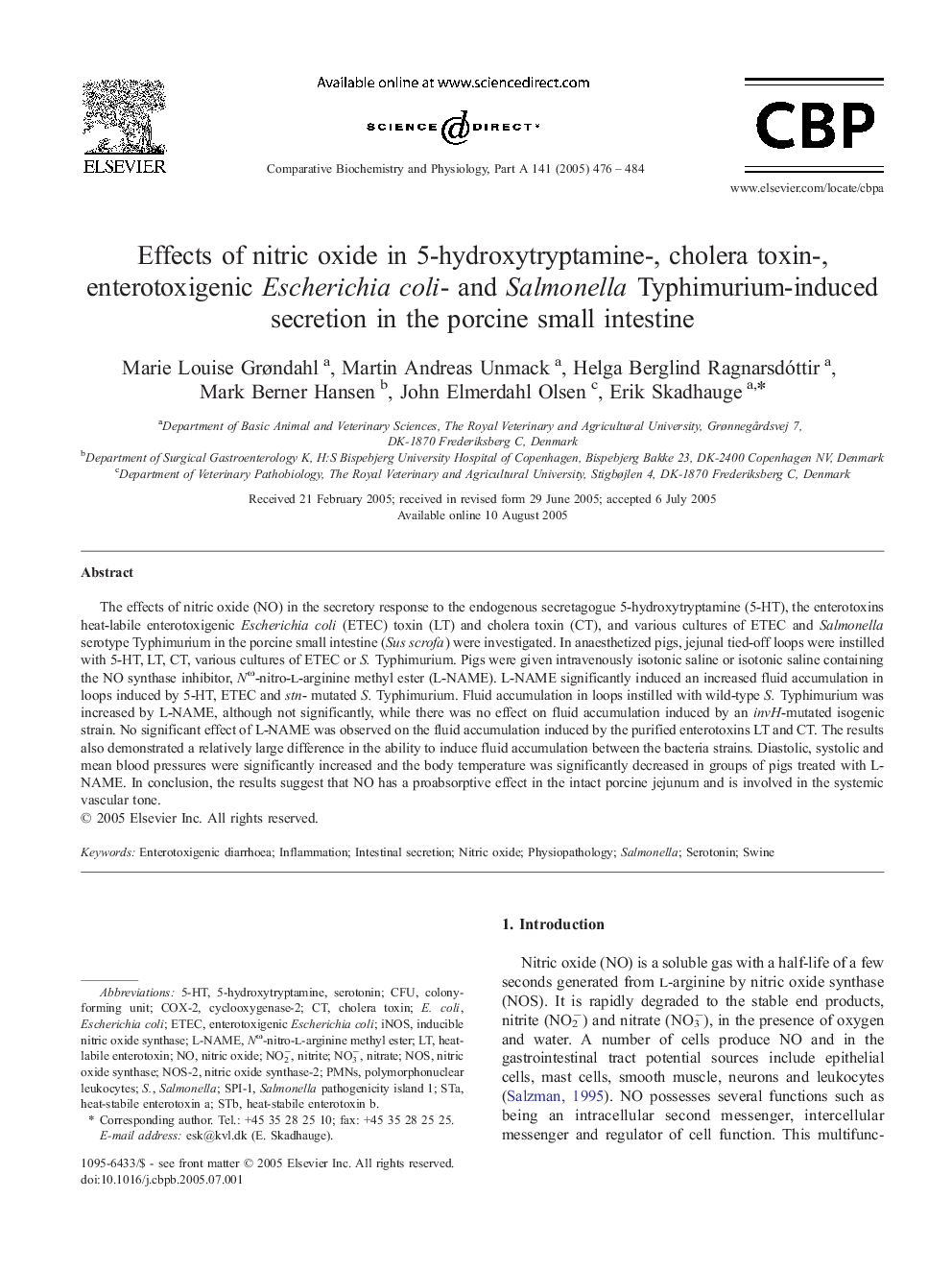| Article ID | Journal | Published Year | Pages | File Type |
|---|---|---|---|---|
| 10819394 | Comparative Biochemistry and Physiology Part A: Molecular & Integrative Physiology | 2005 | 9 Pages |
Abstract
The effects of nitric oxide (NO) in the secretory response to the endogenous secretagogue 5-hydroxytryptamine (5-HT), the enterotoxins heat-labile enterotoxigenic Escherichia coli (ETEC) toxin (LT) and cholera toxin (CT), and various cultures of ETEC and Salmonella serotype Typhimurium in the porcine small intestine (Sus scrofa) were investigated. In anaesthetized pigs, jejunal tied-off loops were instilled with 5-HT, LT, CT, various cultures of ETEC or S. Typhimurium. Pigs were given intravenously isotonic saline or isotonic saline containing the NO synthase inhibitor, NÏ-nitro-l-arginine methyl ester (L-NAME). L-NAME significantly induced an increased fluid accumulation in loops induced by 5-HT, ETEC and stn-mutated S. Typhimurium. Fluid accumulation in loops instilled with wild-type S. Typhimurium was increased by L-NAME, although not significantly, while there was no effect on fluid accumulation induced by an invH-mutated isogenic strain. No significant effect of L-NAME was observed on the fluid accumulation induced by the purified enterotoxins LT and CT. The results also demonstrated a relatively large difference in the ability to induce fluid accumulation between the bacteria strains. Diastolic, systolic and mean blood pressures were significantly increased and the body temperature was significantly decreased in groups of pigs treated with L-NAME. In conclusion, the results suggest that NO has a proabsorptive effect in the intact porcine jejunum and is involved in the systemic vascular tone.
Keywords
5-HTSPI-1NOS-2PMNsiNOSNOSETECCOX-2STAE. coliCFU5-hydroxytryptamine, serotoninenterotoxigenic Escherichia colil-NAMENω-nitro-l-arginine methyl esterNO2−NO3−Escherichia coliinflammationheat-labile enterotoxinIntestinal secretionSalmonella Pathogenicity Island 1SwineSalmonellaSerotonininducible nitric oxide synthasecholera toxinCyclooxygenase-2Physiopathologypolymorphonuclear leukocytesNitrateNitriteNitric oxidenitric oxide synthaseNitric oxide synthase-2STBcolony-forming unit
Related Topics
Life Sciences
Biochemistry, Genetics and Molecular Biology
Biochemistry
Authors
Marie Louise Grøndahl, Martin Andreas Unmack, Helga Berglind Ragnarsdóttir, Mark Berner Hansen, John Elmerdahl Olsen, Erik Skadhauge,
